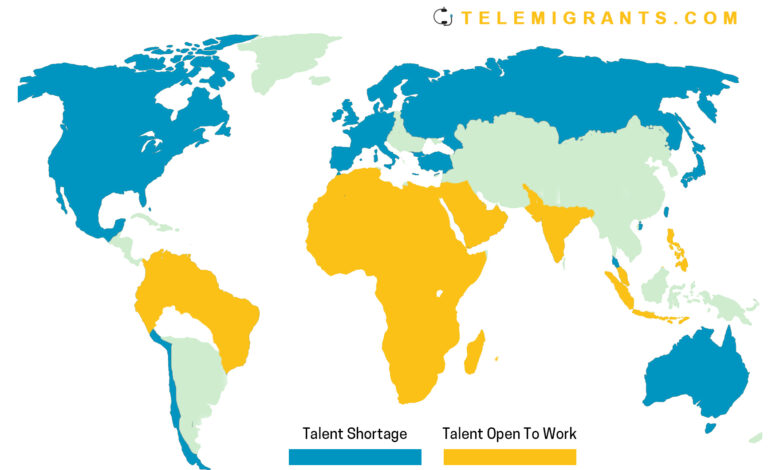Talent Shortage and Comfort Zone Recruitment
Exploring ways to recruit beyond your comfort zone

Globally, the labor market is witnessing significantly the problem of talent shortage as more and more hiring managers are looking for ways to find the right candidates matching their hiring needs.
For instance in the United States of America, the problem of talent shortage is reported to have reached a climax which is further exacerbated by the Covid-19 pandemic and an aging population leading to what hiring managers regard as talent crunch, which is the scarcity of skilled workers needed to fill up new positions.
The Harvard Business Review reported that in November 2021, job openings in the United States exceeded 10.5 million, compared to 3.8 million a decade ago with nearly half of respondents to an October survey by the National Association of Business Economics reporting a shortage of skilled workers in the third quarter.
Concomitantly, the same is happening in Europe as hinted by The European Business Review that Europe is currently experiencing a labor and skills shortage with demand for labor, as measured by job vacancy rate, reaching pre-pandemic levels in the first quarter of 2021 with key shortages in digital skills required in the information and communications sector.
The question many labor economists and leaders are asking is why should the world be experiencing talent shortage at this increasing rate when we should rather be enjoying the economies of globalization.
Hiring Beyond Comfort Zone
Recently the vice president of talent recruiting with Globalization Partners, Mark Hedley made a shocking but true revelation as to why this is happening.
According to him, talent is out there, the problem is that hiring managers are not looking for the talents in the right places, they are simply limiting their search within their comfort zone instead of leveraging the global talent pool to access talents beyond their geographic borders.
To access the global talent pool in hiring beyond comfort zone, Mark advocates a change in mindset among hiring managers and executives to not depend on trying to fill the same chair in the same place with a different person as that will mean looking at a very limited pool of talent.
Opportunities Beyond Comfort Zone
Industry 4.0 brought with it amazing opportunities that hiring managers and executives should leverage in securing the right talents and to avoid being cut up by the problem of talent shortage which many labor market analysts regard as just myths. One of such opportunities is the emergence of telemigrants and digital nomads; that is professionals who leverage teleworking tools to works regardless of where they’re residing or those who move from country to country supporting their travels by working online from whatever country they find themselves anchored on remote job opportunities and the gig economy.
This remote talent pool is seen to be opening up more in Africa, South America and South Asia making up the developing economies. For instance, Africa has been regarded as the youngest continent of our time with many young people getting up-skill training and joining the global talent economy.
Therefore hiring managers in America and Europe should have to look farther than their immediate environment by having a change in attitude to getting comfortable hiring from Africa, South America and Asia in order to fill up the talent gap they are experiencing with a limited approach of hiring confined within their comfort zone.
There’s rather a talent boom in Africa, South America and Asia as opposed by a talent shortage in America and Europe even as the current mapping shows, meaning the problem of talent shortage would be mitigated when hiring managers in advanced economies begin to accept talents from emerging labor markets as this will help manage the problem of brain-drain in developing countries and provide global inclusion in recruitment or what experts call the democratization of job opportunities. After all, in our world today, people no longer have to travel to other countries in search of opportunities rather work is now moving to people, and more companies are becoming a lot more comfortable with that. I think you too should.
My name is Faith Nwaobia (Dr.) I am a social analyst and entrepreneur leading a social enterprise Youthup Global. I write regularly on LinkedIn.
.




